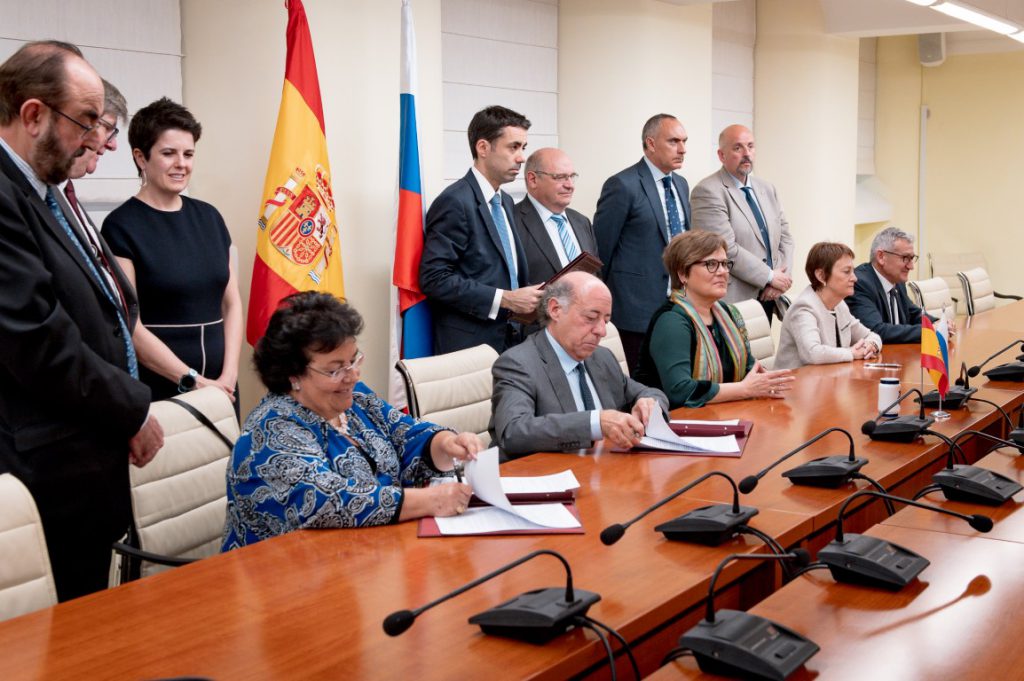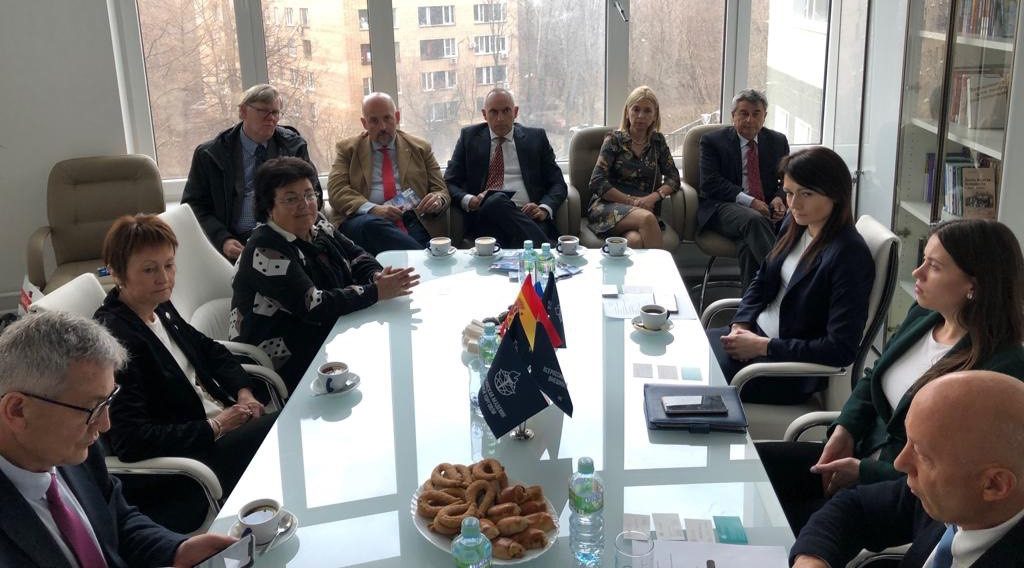11/04/2019
The URV signs an agreement with Russian and Spanish universities to offer joint programmes for mobility, training and research
Students will be able to attend the summer school of the Russian Presidential Academy of National Economy and Public Administration this year

Students will be able to attend the summer school of the Russian Presidential Academy of National Economy and Public Administration this year
The URV has signed a framework agreement with four Russian universities and three other Spanish universities that will allow the universities to (in different phases) exchange students, collaborate in research, and offer double degree programmes. It is an unprecedented agreement in which the Secretary of State for Universities, Research, Development and Innovation of the Government of Spain has mediated. The URV is the only Catalan university to take part in the agreement.
The other universities that signed the agreement on Tuesday, 9 April in Moscow are: the University of Valencia, which has previously collaborated with Russian universities, the University of Oviedo and the Carlos III University, which are both Spanish, and the Russian Presidential Academy of National Economy and Public Administration (RANEPA), which has co-led the process, the National University of Science and Technology MISIS, the Russian Foreign Trade Academy and the Tomsk State University, from Russia.
The first action that the agreement will seek to address is whether students from the Spanish universities can attend the RANEPA International Summer School in the Kazan region in 2019. URV students will be offered five places and mobility includes the entire stay and training expenses, except the flights. For the Vice-Rector for Internationalization, John Style, this is an “opportunity for students to expose themselves to Russian culture”.

The next phases of the agreement intend to develop specific agreements for cooperation in research projects and to offer double degree programmes, in addition to addressing the exchange of students. In this regard, this year the signatory universities of the agreement are expected to work on the curricula to define the areas of knowledge in which research collaboration and especially joint teaching can be carried out.
